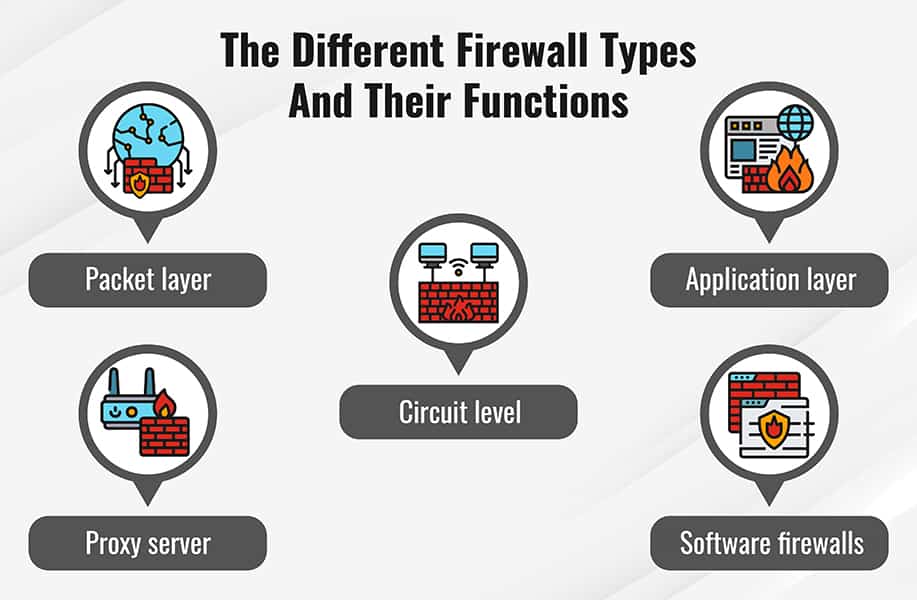In the age of digital transformation, data breaches have emerged as a significant concern for organizations of all sizes and industries. These breaches not only result in financial losses but also damage reputations and erode customer trust. As the first line of defense against external threats, firewall software plays a crucial role in preventing data breaches by effectively controlling and monitoring network traffic. This article explores the various ways in which firewall software contributes to safeguarding digital assets and preventing data breaches.
Understanding Data Breaches
A data breach occurs when unauthorized individuals gain access to sensitive or confidential information without the consent of the data owner. This information could include personal identifiable information (PII), financial data, intellectual property, or any other sensitive data that, if exposed, could cause harm to individuals or organizations. Data breaches can occur due to various reasons, including cyber attacks, insider threats, human error, or system vulnerabilities.
The Functionality of Firewall Software
Firewall software acts as a barrier between a trusted internal network and untrusted external networks, such as the internet. It monitors and controls incoming and outgoing network traffic based on predetermined security rules, thereby preventing unauthorized access and protecting against cyber threats. Firewall software operates at the network level (Layer 3) or the application level (Layer 7) of the OSI model, depending on its capabilities and configuration.
Key Roles of Firewall Software in Preventing Data Breaches
- Access Control: One of the primary functions of firewall software is to control access to the network by enforcing security policies. By filtering incoming and outgoing traffic based on source and destination IP addresses, port numbers, protocols, and other parameters, firewall software prevents unauthorized entities from accessing sensitive data stored on internal systems. Access control rules can be customized to allow or deny traffic based on specific criteria, reducing the risk of data breaches caused by unauthorized access attempts.
- Intrusion Prevention: Modern firewall solutions incorporate intrusion prevention systems (IPS) that proactively monitor network traffic for signs of suspicious or malicious activity. IPS functionality allows firewall software to detect and block known attack signatures, anomalous traffic patterns, and other indicators of compromise, thereby thwarting attempted intrusions before they can escalate into full-blown data breaches. By continuously updating threat intelligence databases and applying heuristic analysis techniques, firewall software can effectively defend against emerging threats and zero-day attacks.
- Application Control: Many data breaches occur due to vulnerabilities in specific applications or protocols that are exploited by attackers to gain unauthorized access to systems or exfiltrate sensitive data. Firewall software with application control capabilities enables organizations to monitor and regulate the use of applications within the network. By identifying and blocking unauthorized or potentially risky applications, firewall software reduces the attack surface and mitigates the risk of data breaches resulting from application-level vulnerabilities or exploits.
- Content Filtering: In addition to controlling access to network resources, firewall software can also perform content filtering to prevent the transmission of sensitive or inappropriate data. Content filtering rules can be configured to block outbound traffic containing keywords, file types, or patterns associated with sensitive information, such as credit card numbers, social security numbers, or confidential documents. By enforcing content filtering policies, firewall software helps prevent accidental data leakage and unauthorized data exfiltration, thereby reducing the likelihood of data breaches caused by insider threats or inadvertent actions.
Conclusion
In conclusion, firewall software plays a critical role in preventing data breaches by providing essential capabilities for controlling and monitoring network traffic. Through access control, intrusion prevention, application control, and content filtering, firewall software helps organizations defend against external threats, mitigate the risk of unauthorized access, and protect sensitive data from compromise. By deploying robust firewall solutions and implementing best practices for firewall management and configuration, organizations can strengthen their cybersecurity posture and safeguard their digital assets against the ever-present threat of data breaches.
